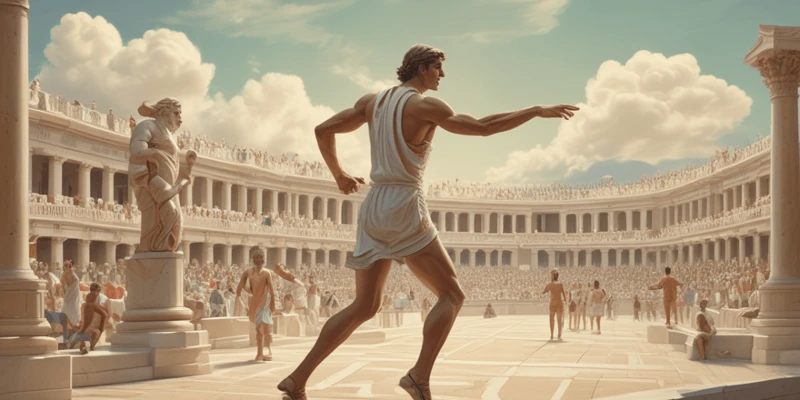The Olympic Games are not just a celebration of athletic prowess; they are a rich tapestry woven through the fabric of history. Originating in ancient Greece around 776 BC, the Games have evolved dramatically, transcending cultural boundaries and political upheavals. As we journey through this blog post, we will explore the roots of the Olympics, the significant milestones in both ancient and modern iterations, and the profound impact of global events on this iconic sporting tradition. From their revival in the 19th century to the commercialization and technological advancements that define them today, the Olympic Games continue to captivate and inspire millions around the world.
Origins of the Olympic Games
The history of the Olympic Games dates back to ancient Greece, where it is widely believed that the first Games were held in 776 BC, a time when athletic prowess was not only celebrated but also seen as a reflection of one's city-state's honor and pride, thus creating a competitive atmosphere that would resonate through centuries, showcasing the deep connection between sport and culture. These early Olympic Games were a part of a religious festival in honor of Zeus, where athletes gathered from various Greek city-states to compete not only for glory but for the olive wreath that symbolized victory, making the event not just a sporting competition but a cultural and religious celebration that unified the often fractious Greek world. In addition to the athletic competitions, which included events such as foot races, wrestling, and chariot contests, the Olympic Games served as a crucial platform for diplomacy and communication among the city-states, as they established a sacred truce known as the Olympic peace during the period of the Games, allowing athletes and spectators to travel safely to the ancient site of Olympia without fear of conflict. Throughout its early years, the Olympic Games grew in scale and prestige, with more events being added and an increasing number of participants, transforming from a local festival into a grand celebration of athletic excellence that attracted the attention of not just the Greeks but also neighboring regions, eventually influencing other cultures and societies in different parts of the world.
- The first recorded winner of the Olympic Games was Coroebus, a chef from Elis, who won the sprint event in 776 BC.
- The Games were held every four years, known as an Olympiad, creating a regular cycle that became a crucial aspect of Greek life.
- During the early Games, only freeborn Greek males were allowed to compete, with women generally excluded from participation, although there was a separate festival for female athletes called the Heraean Games.
As these ancient competitions continued to evolve through the centuries, becoming deeply ingrained in the cultural fabric of Greek society, they also laid the foundation for the Olympic ideals that inspire the modern Games today, instilling a sense of unity, respect, and the relentless pursuit of excellence that remains at the heart of the Olympic movement. The enduring legacy of these ancient traditions is not just in the athletic realm, but also in the values and principles that have transcended time and continue to hold relevance in today's world, indicating a rich history that remains etched in the consciousness of humanity. Overall, the origins of the Olympic Games serve not only as a fascinating exploration of athletic history but also as a poignant reminder of the unifying power of sport that has persisted throughout the ages, connecting past and present in a harmonious celebration of human achievement.
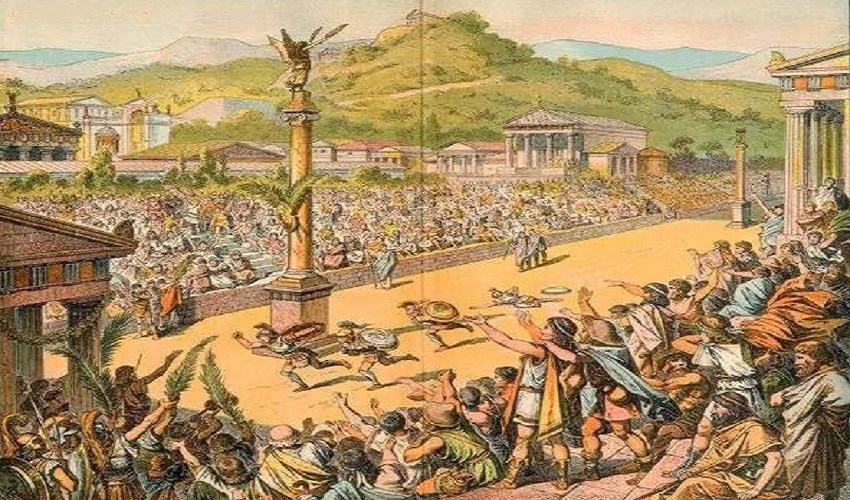
Development of the Ancient Olympics
The origins of the Olympic Games can be traced back to ancient Greece, where the first recorded event took place in 776 BCE in Olympia, a city that became synonymous with these prestigious athletic contests; originally, the Games were held in honor of Zeus, the king of the Greek gods, and thus, they were more than mere sporting events, as they served a religious purpose, bringing together city-states for a series of competitions that fostered camaraderie and peaceful relations among them. Over the years, the format of the Olympic Games evolved, with an increasing number of events added to the roster, including wrestling, boxing, and chariot racing, which captivated audiences and participants alike, demonstrating not only physical prowess but also strategic skill and stamina, and these developments contributed to the reputation of the Olympic Games as the premier athletic festival of the ancient world. One of the most significant changes in the structure of the Games over time was the introduction of various competitions that not only tested athletic skill but also artistic expression, such as the inclusion of the pentathlon, which combined running, long jump, discus, javelin, and wrestling; according to the historians of the period, this multifaceted event aimed to highlight the versatility of the competitors, showcasing their ability to excel across different disciplines, and thus, the Olympic Games became a celebration of the human spirit and determination. - The Ancient Olympics were initially held every four years. - The games featured only a single event, the stadion, which was a foot race of approximately 192 meters. - The competitions gradually expanded to include various disciplines that appealed to a wider array of participants and spectators. As the Olympic Games continued to grow in popularity, new cities eagerly sought the honor of hosting the festivities, which not only reinforced the cultural significance of the event but also spurred economic activity in the host city, creating a thriving environment that encouraged athletic progress, festival celebrations, and community pride, thereby solidifying the ancient Olympics as a cornerstone of Greek society. While political events often influenced participation and allowed rival states to negotiate peace during the Sacred Truce, the ultimate goal remained to celebrate athletic excellence, honor the gods, and forge connections between diverse peoples through the universal language of sport, establishing a legacy that would resonate through the ages and inform the values of the modern Olympic Games.
Revival of the Modern Olympics
The revival of the Olympic Games in the modern era is an inspiring story, one that began in the late 19th century when a French historian named Pierre de Coubertin recognized the need for a revival not only of athletic competition but also of the ideals of peace and camaraderie that characterized the ancient games. In 1896, his vision materialized with the first modern Olympic Games being held in Athens, Greece, which not only symbolized a return to the origins of the Olympic tradition but also sought to unite nations through the shared experience of sport, leading to a significant cultural and social impact that transcended geographic boundaries. This monumental event featured athletes from thirteen nations competing in forty-three events across nine sports, showcasing an unprecedented spirit of international cooperation and competition that has defined the Olympic movement ever since. Participating in the revival of Olympic traditions, the inaugural modern games established valuable precedents such as the international participation of athletes, the implementation of various sports disciplines, and the establishment of contiguous Olympic cycles that culminate in the larger festivity of the games once every four years. As the event garnered increasing attention and popularity, Coubertin continued to advocate for the ideals of Olympism, emphasizing the importance of education, sportsmanship, and fair play, which sought to promote healthy lifestyles and broaden the horizons of youth across the globe. Over the years, the Olympic Games expanded, adapting to the evolving landscapes of society and culture, which allowed for the inclusion of more diverse sports and nations, creating an ever-growing tapestry of athletic expression on the world stage.
- 1896: First modern Olympic Games in Athens, Greece.
- 1900: Inclusion of women's events for the first time.
- 1908: Games held in London, featured athletes from 22 nations.
- 1936: Controversial Berlin Games, marked by political tensions.
- 1960: Rome hosted the first Games covered live on television.
- 2000: Sydney Games, widely regarded as one of the best-organized Olympics.
The resilience of the Olympic movement was notably tested during the tumultuous periods of the 20th century when political dynamics often led to boycotts and disputes, yet despite such challenges, the core values of the Olympic Games—universality, participation, and celebration of human capability—persisted, exemplifying the spirit of unity and competitive excellence that de Coubertin envisaged. The Olympics were not only a showcase of athletic prowess but became a platform for promoting social and political change, empowering nations to come together in ways that transcended conflict and division, and illustrating that sports can serve as an instrument for diplomacy and dialogue. Over the decades, the frequency and significance of ceremonies, torch relays, and Olympic symbolism have all played crucial roles in reinforcing a collective global identity, unifying diverse cultures through the shared joy and camaraderie of sport. Transitioning into the 21st century, the Olympic Games have embraced technological advancements and innovations that revolutionized the presentation and experience of the games, resulting in a more engaging viewing experience for audiences around the globe and expanding their reach through digital media and global broadcasting. The introduction of new sports and the alteration of existing events have continuously reflected societal changes and advancements in training methodologies, ensuring the Olympic Games remain relevant and appealing to modern audiences, further promoting the ideals of Olympism in a multitude of ways. As we continue to witness the evolution and growth of the Olympic Games, it is important to remember the historical significance of their revival, as it laid the foundation for a worldwide celebration of human potential and unity that continues to inspire generations.
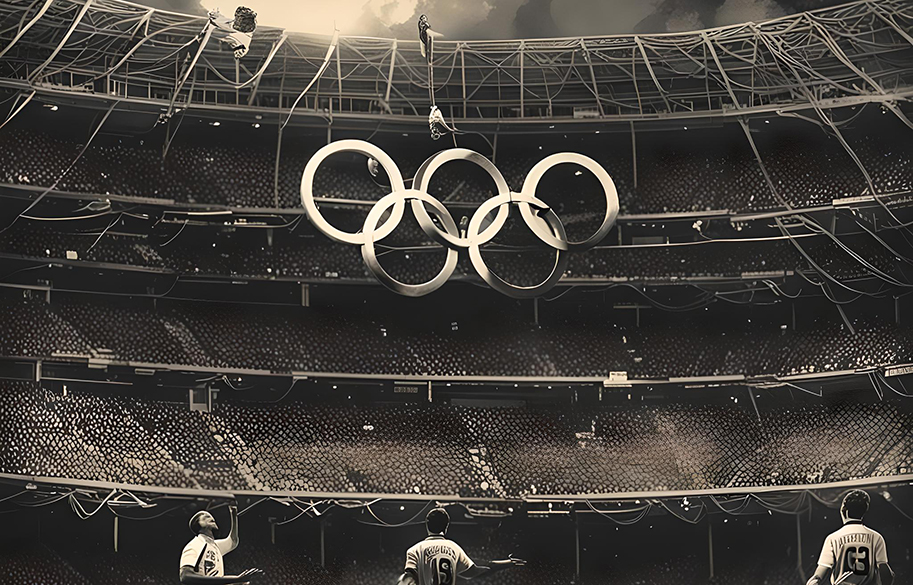
Expansion of Olympic Sports
The journey of the Olympic Games has always been marked by an ever-evolving landscape of sports that reflect not just the spirit of athletic competition but also the cultural and societal changes across time; this transformation is evident in the expansion of Olympic sports, which has taken the original, exclusive events of the ancient games and broadened them into the diverse array of competitions we witness today, encompassing disciplines that range from the classic tracks and fields to contemporary sports like skateboarding and surfing. In fact, since the inaugural modern Olympics held in Athens in 1896, the games have seen the inclusion of a plethora of new sports, each bringing its unique flavor and challenges to the Olympic arena, thereby enhancing the overall appeal and inclusivity of this venerable global event. Indeed, the evolution of the Olympic sports program has been influenced by various factors, including changes in public interest, advancements in sports science, and the desire of host countries to showcase their own popular sports on an international stage; for instance, the introduction of sports such as basketball, which was first included in the Olympics in 1936, has undoubtedly contributed to the widespread global popularity of the games, as it resonated not only with athletes but also with fans from all walks of life. Additionally, with the push for greater diversity and representation in recent years, many traditional sports have seen the inclusion of mixed-gender events, aiming to foster unity and inclusiveness, ideals that were central to the very foundations of the Olympic Movement.
Modern Additions and Innovations
The expansion of Olympic sports has also encountered innovative additions that appeal to younger audiences, which is vital for the sustainability of the Games in a rapidly changing world, as evidenced by the inclusion of sports such as skateboarding, sport climbing, and surfing in the Tokyo 2020 Olympics, where they not only added excitement but also infused a sense of modernity and relevance into a historic event. This strategic move by the International Olympic Committee (IOC) aims to engage a new generation of athletes and fans, thereby ensuring that the Olympic Games remain a vital part of global culture and sports for years to come. Moreover, the revision and adaptation of existing sports have also played a significant role in the expansion of the Olympic program, where traditional sports have undergone changes to improve their visibility and engagement with fans; for example, the addition of new formats such as three-on-three basketball and mixed relay events in swimming and athletics showcases an evolution that retains core elements while offering fresh experiences for audiences. By continuously assessing and adapting the sports featured in the Olympic Games, the IOC demonstrates a commitment to fostering an environment that celebrates both tradition and modernity, ensuring the Games resonate with people worldwide.
Future Prospects of Olympic Sports
Moving forward, the future of the Olympic Games lies in its ability to remain dynamic and responsive to the interests of athletes and spectators alike, with continued discussions focused on possible new sports like breaking, which is anticipated to debut in the Paris 2024 Games, exemplifying the desire to keep pace with contemporary athletic trends and cultural shifts. This ongoing expansion also highlights a broader ambition to create a platform that is not only competitive but also inclusive and engaging, reflecting the Olympic spirit which seeks to unite people through sports. As we look to the future of Olympic Sports, it is essential to recognize that this evolution is not merely about adding new events but also encapsulating the essence of the Olympics in a modern context, where diversity, representation, and innovation play pivotal roles in shaping the narrative of what it means to be part of this esteemed global gathering; thus, the continuous expansion of the Olympic Sports program can be seen as an integral aspect of the Olympic journey, inviting participants and fans alike to partake in a celebration of athletic excellence.
- Inclusion of new sports that resonate with younger audiences.
- Adaptation of traditional sports to enhance viewer engagement.
- Focus on diversity and representation in Olympic competitions.
- Commitment to evolving the Olympic program in response to contemporary culture.
- Fostering a sense of global unity through expanded sports offerings.
Political Influence on the Olympics
The Olympic Games have long served as a stage not only for athletic excellence but also for various political agendas, allowing nations to showcase their power and influence on a global stage, which has often led to instances where sports and politics intertwine in ways that are both profound and impactful, ultimately shaping the very essence of the Games themselves. Historically, from the boycotts to the grand displays of nationalism, the influence of politics has been a recurring theme, demonstrating how international relations can substantially affect the participation and success of countries, while also altering the very narrative surrounding the Olympic Games. The implication of political motives in the Olympics can be seen vividly through events such as the Berlin Olympics in 1936, which were staged by Adolf Hitler to promote an image of Nazi Germany, showcasing the extent to which politics can shape sporting events. In highlighting instances of political influence, it is crucial to consider some of the standout moments that underscore the correlation between sport and politics:
- The 1980 Moscow Olympics boycotted by the United States in protest against the Soviet invasion of Afghanistan.
- The 1984 Los Angeles Olympics which saw the Soviet Union and numerous Eastern Bloc countries retaliate with their own boycott.
- The politically charged atmosphere surrounding the Black Power salute during the medal ceremonies at the 1968 Mexico City Olympics.
Examples such as these not only reflect socio-political tensions of the time, but they also provide insight into how the Olympic Games are often used as a platform to make powerful statements, demonstrating the complex dynamics that exist between governments, nations, and the ideals of the Olympic movement. In the 1936 Berlin Olympics, for instance, the event was transformed into a massive propaganda tool for the Nazi regime, vividly illustrating how the Olympic Games can be co-opted by political entities to convey particular ideologies, thus blurring the lines between sport and statecraft. Conversely, advancements towards inclusivity and diversity within the Olympic structure have also been a response to, and an effort to counteract, past political maneuvers, aiming to create a fuller representation of the global community. | Year | Event | Political Context | |------|-------|-------------------| | 1936 | Berlin Olympics | Used for Nazi propaganda | | 1968 | Mexico City Olympics | Black Power salute | | 1980 | Moscow Olympics | U.S. boycott over Soviet invasion | | 1984 | Los Angeles Olympics | Retaliatory boycott by USSR | As the Olympic Games continue to evolve, the interplay between politics and sports remains a crucial factor that organizers have to navigate, balancing the spirit of competition with the myriad pressures exerted by national interests, diplomatic relations, and social movements. Additionally, the ongoing discourse regarding issues such as athlete rights, gender equality, and geopolitical tensions further emphasizes the need for the Olympic movement to adapt, ensuring that while the competition thrives, it also resonates with the realities of our world today. Indeed, the Olympic Games, while celebrating human achievement, also reflect the aspirations and struggles of nations, reminding us that sports is never merely about victory but also about the broader narratives that shape our global society.
Olympic Games During World Wars
The Olympic Games, a grand celebration of athleticism and international unity, faced significant disruption during both World War I and World War II, as the tumultuous global environment rendered it increasingly difficult to uphold the ideals of peace and camaraderie that the games were initially founded upon, with nations embroiled in conflict, and many of the athletes who would have competed being enlisted in their respective armed forces. The unprecedented challenges posed by these wars not only resulted in the cancellation of the scheduled events but also prompted a reevaluation of the significance of the Olympic movement in the face of global strife, leading individuals to ponder whether such a gathering of nations, which touted the spirit of sportsmanship and brotherhood, could ever breach the walls of animosity that divide countries at times of turmoil. In 1916, the Summer Olympic Games were scheduled to take place in Berlin, Germany; however, due to the outbreak of World War I, the event was ultimately canceled, leaving the world of sports in disarray as prominent athletes were thrust into the chaos of war, while the hopes of nations were dashed as they longed for a moment of unity through competition, a feeling that had been deeply ingrained in the Olympic tradition since its inception in ancient times. Similarly, during World War II, the 1940 Tokyo Olympic Games were also called off, as nations remained embroiled in conflict, resulting in a profound disruption of the sporting calendar that affected not only athletes but also fans who looked forward to this magnificent celebration of global unity and excellence. As the world reeled from the cataclysmic impacts of these wars, the Olympics found itself grappling with the philosophical implications of its existence and relevance in an increasingly fractured world. The aftermath of these wars brought about a new appreciation for the Olympic Games and the need for resilience in the face of adversity, with many advocating for the restoration of the event as a symbol of hope and recovery, a notion that came to fruition when the Olympics were successfully revived in 1920 in Antwerp, Belgium, marking a poignant return to peace among nations after the devastation of World War I. The games resumed in 1948, as London graciously hosted the Olympics, demonstrating a commitment to rebuilding international bonds and trust amidst the shadows of austerity and reconstruction that the war had left behind, embodying the timeless spirit of the Olympic motto: Citius, Altius, Fortius, which translates into Faster, Higher, Stronger, reflecting not only athletic performance but also the enduring will of humanity to rise above challenges. It is essential to acknowledge the lessons learned from the disarray that marred the Olympic Games during these tumultuous times, as the global conflicts served to illustrate the fragility of peace and the paramount importance of coming together as a collective society to strive for mutual understanding through shared experiences, a message deeply embedded within the fabric of the Olympic ideal. The challenges faced in the early 20th century reaffirmed the significance of the games as not merely a sporting event but also as an emblem of hope and a platform for healing, fostering camaraderie and spirit among nations that yearned to preserve their individuality while collectively celebrating human achievement, regardless of the historical context that shaped their respective journeys. In conclusion, while the tragic realities of World War I and II undeniably cast a shadow over the Olympic Games, they also laid the groundwork for a renewed commitment to the promotion of peace, unity, and collaboration among nations, demonstrating that even amidst the worst of times, the enduring spirit of the Olympic movement continues to inspire generations, urging them to aspire towards greatness, celebrate diversity, and advocate for a peaceful coexistence that transcends the confines of rivalry and animosity among nations. As we reflect on the historical impact of warfare on the Olympic Games, we are reminded of our collective responsibility to nurture this global heritage, ensuring that the Olympic flame burns brightly, illuminating a path to a more harmonious future, wherein sports can once again serve as a bridge that connects us all.
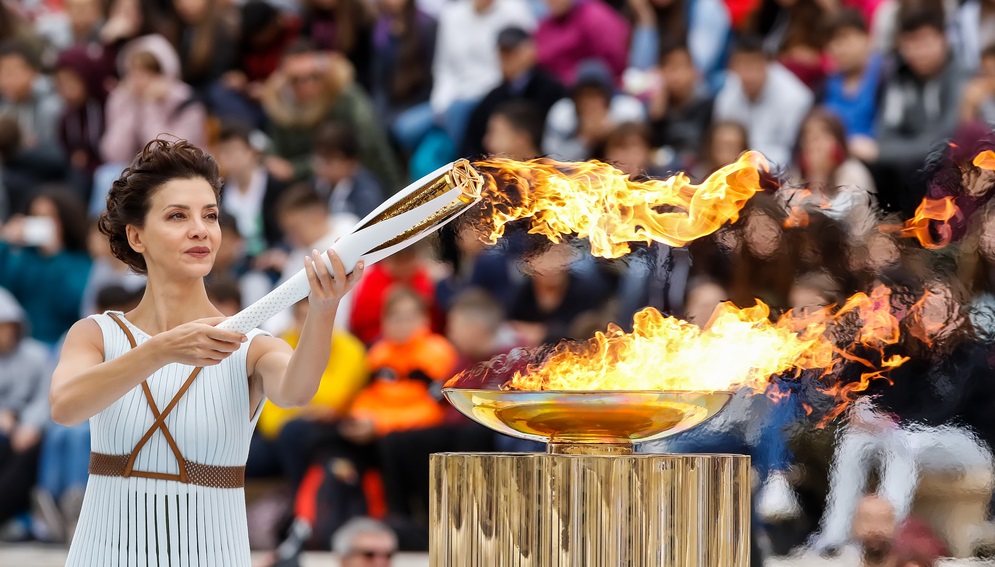
Commercialization of the Olympics
The commercial aspect of the Olympic Games has evolved significantly over the years, transforming the grand spectacle of athletic prowess into a thriving industry that generates billions of dollars, illustrating how the intersections of sports, media, and commerce reflect broader societal values and priorities. With the introduction of corporate sponsorships, broadcasting rights, and merchandise sales, the Olympic movement has experienced unprecedented financial growth, which, while contributing to the overall development of sports across the globe, raises essential questions about the underlying motivations that now drive the Games. As Thomas Bach, the current president of the International Olympic Committee, once stated, Sport should be about peace and conscious self-discipline, yet the reality reflects a much greater commercial focus that sometimes overshadows these ideals. The commercialization of the Olympics has been prominently evident since the early 1980s when television networks began to recognize the significant viewership potential during the Games, leading to bidding wars for the rights to broadcast the events, a trend that ultimately culminated in increased revenues for both the organizers and the participating nations. These financial gains have encouraged the Olympic Committee to forge partnerships with major corporations, resulting in the establishment of global sponsorship programs, ensuring consistent support for the Games while simultaneously heightening the visibility of brands and products associated with this prestigious event. The reality of economic pressures now weighs heavily on the Olympic framework, with tangible consequences seen in the prioritization of profit over pure sporting spirit, compelling stakeholders to navigate the complex balance between ideals and commercial interests. In examining the far-reaching implications of this commercialization, it is crucial to recognize the various ways in which fans, athletes, and nations experience the Olympic Games. The following highlights illustrate the spectrum of commercialization and its impact on the Olympic movement:
- Increased media coverage and advertising opportunities.
- Higher ticket prices leading to accessibility concerns for everyday fans.
- Global competition among cities to host the Games, driven by economic incentives.
- Brand association shaping public perceptions of the Olympics.
- Emergence of corporate social responsibility initiatives to combat negative perceptions.
While the economic contributions of the commercial era have positively impacted infrastructure development and athlete support, many critics argue that the Olympic Games, in their quest for profit, have increasingly lost their essence, with genuine athletic competition sometimes taking a back seat to the unrelenting pursuit of revenue. This diversification of interests has provoked discussions about the fundamental purpose of the Olympics and whether commercial success undermines the event's core ideals of unity, peace, and competition. As we look toward the future of the Olympic Games, one cannot help but wonder how the balance between commercial interests and the original vision will continue to evolve, and whether a sustainable model can be achieved that preserves the integrity of this cherished global celebration of sport.
Impact of Technology on the Olympics
The evolution of technology has significantly influenced the Olympic Games, altering not only the way athletes compete but also how spectators engage with the event, and enhancing the overall experience for both competitors and fans alike, beginning with relatively simple timing devices in the early Olympic competitions to the highly sophisticated equipment we see today, which plays a crucial role in improving performance, ensuring fair play, and providing immense data analytics that athletes and coaches utilize in preparation and execution of their strategies during competitions. As we delve into the various innovations that have emerged throughout the history of the Olympic Games, it becomes abundantly clear that technology continues to inspire and propel the spirit of competition to new heights, ensuring that the Games remain at the forefront of global sports.
Advancements in Timing and Scoring
The introduction of modern electronic timing systems, which replaced the more rudimentary stopwatches, has revolutionized track and field events, allowing for unprecedented accuracy in recording athletes’ performances down to a fraction of a second, thus fostering remarkable records that were once thought impossible. Moreover, the integration of photo-finish technology permits officials to determine outcomes in races where competitors are separated by merely a hair’s breadth, effectively minimizing human error, and amplifying the spirit of healthy competition that lies at the heart of the Olympic Games. Furthermore, automatic scoring systems in sports such as fencing and gymnastics not only reduce discrepancies but also enhance transparency, a crucial aspect in maintaining the integrity of this time-honored event.
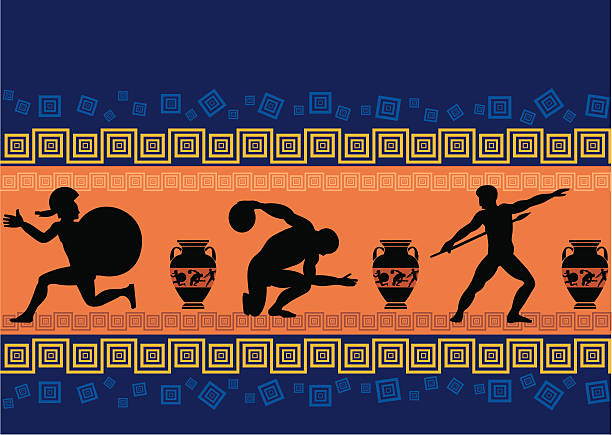
Enhancements in Broadcasting and Viewer Experience
The impact of technology on the Olympics extends well beyond the athletes themselves, as innovations in broadcasting systems and digital media have enriched the viewing experience, enabling fans around the world to witness the feats of their favorite athletes in real time from anywhere in the comfort of their homes or on-the-go via mobile devices, fostering a truly global fanbase for the Olympic Games. The advent of high-definition television, along with live streaming options, has transformed how fans connect with the event, allowing for multiple camera angles and instant replays that dramatize the thrilling moments of this prestigious showcase of athletic prowess. Moreover, virtual reality and augmented reality technologies are increasingly being explored as advancements that could redefine how fans satiate their desire to engage with the Olympics, providing immersive experiences that bring them closer to the action than ever before.
- Enhanced timing systems ensure accuracy in competition results.
- Photo-finish technology minimizes human error in races.
- Automatic scoring systems promote fairness in judged sports.
- High-definition broadcasting offers a clearer view of events.
- Live streaming allows access from anywhere in the world.
- Virtual reality introduces immersive fan experiences.
Frequently Asked Questions
What are the origins of the Olympic Games?
The Olympic Games originated in ancient Greece around 776 BC as a festival honoring the god Zeus, held in Olympia.
When were the modern Olympic Games first held?
The modern Olympic Games were first held in Athens, Greece in 1896.
How often are the Olympic Games held?
The Olympic Games are held every four years, with alternating summer and winter editions.
What is the significance of the Olympic flame?
The Olympic flame symbolizes purity and the spirit of a peaceful competition, ignited at the site of Olympia and carried to the host city.
Who is known as the father of the modern Olympic Games?
Pierre de Coubertin is widely recognized as the father of the modern Olympic Games for his role in their revival.
What impact did the Olympic Games have on national pride?
The Olympic Games foster a sense of national pride as nations compete on a global stage, showcasing their athletes and culture.
How has the Olympic Games evolved over the years?
The Olympic Games have evolved to include more sports, promote gender equality, and incorporate new technologies in broadcasting and competition.


